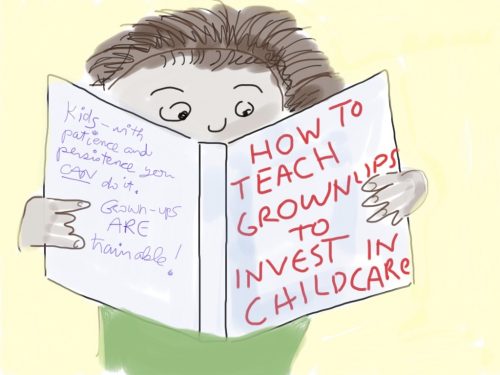The Child Care Payoff
Nancy Folbre
20 January 2019The history of economic research demonstrating the payoff to public investments in early childhood education in the U.S. is rich and deep, even if it hasn’t (yet) mobilized support for a federal initiative in the U.S.

Timothy Bartik put it all together in his aptly titled book, From Preschool to Prosperity, which emphasized the payoff in child outcomes.
Less attention has been devoted to the effects of public childcare provision on women’s earnings, although economists Francine Blau and Lawrence Kahn have noted that the slow growth of women’s employment in the U.S. relative to several European countries is partly attributable to policy differences.
So its important to publicize recent research on the Canadian province of Quebec by economist Pierre Fortin that offers some politically striking results: He argues that the low-fee universal program implemented there in 1996 increased women’s labor force participation sufficiently to pay for itself in increased tax revenues. Molly McCluskey provides a good non-technical summary at Citylab. Spread the news, share the numbers (and, if possible, replicate the analysis!).
Eva Kittay
I wonder if the same could be said of eldercare–whether investments in eldercare can be offset by increases in the earnings of (mostly) women who have to cut back to take care of aging relatives, and of good assitance to people with disabilities, either because it allows them to participate in the workforce or because it frees up parental caregivers.